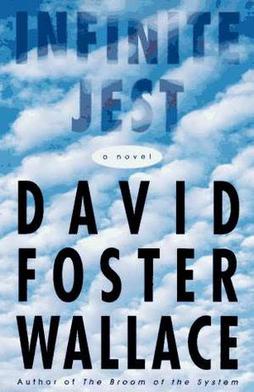
- Image via Wikipedia
On Saturday, 17 July, the Twittersphere exploded with posts about a new online toy — I Write Like, a site that purports to tell you what famous author your work most resembles:
Check which famous writer you write like with this statistical analysis tool, which analyzes your word choice and writing style and compares them with those of the famous writers.
It was only a matter of time before this computational power was brought to bear on the prolific chefs of the Scholarly Kitchen, so I decided to take on the job myself. The following paragraphs record the results of this brief experiment — run on that same hot Saturday in suburban Maryland, principally as a way to avoid the work I was actually supposed to be doing.
First, I took the most recent full-length TSK posting by each of the site’s frequent bloggers — Kent Anderson, Howard Ratner, Phil Davis, Joseph Esposito, Ann Michael, David Crotty, Michael Clarke, and Alix Vance — and ran it through the I Write Like submission form. I was careful to remove extended quoted material from the posts, to avoid gumming up the analysis with artifacts from other literary styles. Here is what came back:
Kent Anderson writes like David Foster Wallace
Howard Ratner writes like David Foster Wallace
Phil Davis writes like H. P. Lovecraft
Joseph Esposito writes like David Foster Wallace
Ann Michael writes like David Foster Wallace
David Crotty writes like David Foster Wallace
Michael Clarke writes like Arthur C. Clarke
Alix Vance writes like David Foster Wallace
To say the least, these results had me scratching my head. Was it really possible that the prose style of six of the eight Scholarly Kitchen authors actually most resembles that of the “hyperarticulate Tin Man” best known for writing Infinite Jest? Perhaps — but it seemed more likely that it was something in the software. For instance: Infinite Jest weighs in at just under 1,100 pages; perhaps the program, when it encounters a blog post approaching that length, simply throws up its virtual hands and defaults to David Foster Wallace.
With that in mind, I decided to explore the other extreme of parameter space — I ran the analysis on the first two and first three paragraphs, respectively, of those same blog posts. The results of the complete experiment are presented, in convenient data-mineable form, in the table below.
| TSK Blogger Name | Based on First Two Paragraphs | Based on First Three Paragraphs | Based on Full Post |
|---|---|---|---|
| Kent Anderson | H. P. Lovecraft | Jack London | David Foster Wallace |
| Howard Ratner | David Foster Wallace | David Foster Wallace | David Foster Wallace |
| Phil Davis | David Foster Wallace | H. P. Lovecraft | H. P. Lovecraft |
| Joseph Esposito | David Foster Wallace | David Foster Wallace | David Foster Wallace |
| Ann Michael | James Fenimore Cooper | James Fenimore Cooper | David Foster Wallace |
| David Crotty | Dan Brown | Leo Tolstoy | David Foster Wallace |
| Michael Clarke | P. G. Wodehouse | Stephenie Meyer | Arthur C. Clarke |
| Alix Vance | David Foster Wallace | Dan Brown | David Foster Wallace |
Two things, at least, jump out of the results above. First, in terms of sheer variety, Michael seems to have fared best. And, second, as David’s results make clear, one paragraph can make a big difference (from Dan Brown to . . . Leo Tolstoy?).
Other investigations — e.g., “Compare and contrast the content of Manage to Change with that of The Leatherstocking Tales” — are left as an exercise for our community of commenters. And the Scholarly Kitchen bloggers themselves, of course, are free to choose whatever literary forebear strikes them as the most flattering.
A few other things I would note about I Write Like:
- One person who doesn’t write like David Foster Wallace, apparently, is . . . David Foster Wallace, who reportedly writes more like Cory Doctorow.
- My own investigations suggest that Joseph Conrad writes like Oscar Wilde, Herman Melville writes like Arthur Conan Doyle, and James Joyce writes like . . . James Joyce.
- To be fair, the builder of the site admits that more literary raw material needs to be loaded in to improve the tool — and, for all I know, it may well have gotten better even in the short week since I ran my experiments. YMMV.
Finally, in the spirit of full disclosure, I did subject my own sole previous blog post on the Scholarly Kitchen — a liveblog of the “Food Fight” session at this year’s SSP annual meeting — to I Write Like’s interpretive scrutiny. Based on the first two and first three paragraphs, the program informed me that I write like Chuck Palahniuk, the author of Fight Club. But it was only when I pasted in the full post that the program was able to come to grips with my allusive, byzantine style, and reveal my true literary lodestar — David Foster Wallace.
Discussion
6 Thoughts on "The Chefs Meet “I Write Like” — or, the Long Arm of David Foster Wallace"
The bloggers over at Making Light did a little digging and were very disappointed with “I Write Like”:
Writing an application that could analyze prose style would be a real achievement. Writing one that compares vocabulary (and probably a few other characteristics like sentence length) is trivially easy…Foo. Wanted cool; got balonium.
Their follow-up suggests it’s something of a scam designed for SEO and for luring aspiring authors to a vanity publisher:
This “I Write Like” site isn’t remotely legitimate. No, they aren’t trying; or, anyway, they aren’t trying to analyze writing samples: They’re trying to lure newbie authors to the rocks and shoals of vanity publication.
The (lengthy) comment stream in the same follow-up post is a bit more charitable to the coder of the site, though distinctly in a “damning with faint praise” way (e.g., “he’s more likely to be clueless rather than actively malicious”).
You’re just cranky because of the Dan Brown thing . . .
Since I’ve been on this earth somewhat longer than Cory Doctorow, wouldn’t it be more accurate to state that he writes like me instead of vice-versa?
Come to think of it – get your own *&^%$&* style Doctorow!
When I analyzed just a few paragraphs, the site came up with Tolkien. We may have a pattern here. Perhaps smaller glops of writing yield more noted figures while longer passages will yield someone a bit more contemporary. I agree that the sales pitch totally cheeses out the effort.
My writing like Arthur C. Clarke is evidence of the emergence of a pan-Clarkeian style. All Clarkes may very well write in a similar style do to innate Clarkeness. I may need work more obelisks into my posts, however…
I ignored this test until a friend earned “James Joyce” for pasting in the speech he gave at his daughter’s Bas Mitzvah. So, I relented, and, on my first attempt, I pasted the text from my blog entry on the death of NY Yankees’ owner George Steinbrenner. I earned the David Foster Wallace prize many of you SK folks won (makes me feel like I am in really good company). But, the analysis was done way too quickly to have me convinced it was legitimate. So, I pasted in a second blog entry–this time on some family history–to see what would happen. The result? Oh, just Shakespeare…



